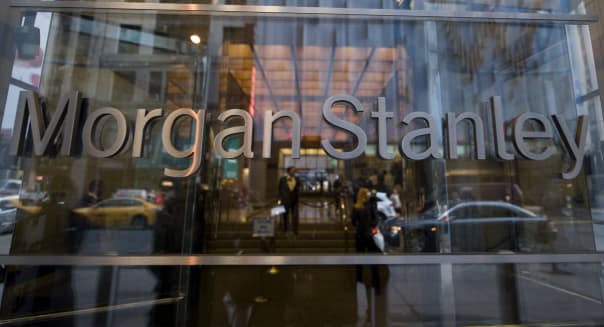Morgan Stanley Fined for Selling Exotic Funds to Unwary Elderly

By Trevor Hunnicutt
Morgan Stanley (MS) has agreed to pay a $100,000 fine to New Jersey state securities regulators for selling exotic exchange-traded funds to unwary investors, state officials said on Tuesday.
The New Jersey Bureau of Securities says improperly trained Morgan Stanley financial advisers sold non-traditional funds, such as leveraged and inverse ETFs, to elderly investors seeking investments that would provide income. The investments resulted in losses for those clients, regulators said.
In a statement, Morgan Stanley said they were "pleased" to reach a resolution.
"The settlement covers the period of January 2007 to June 2009, and Morgan Stanley revamped its processes regarding these products over 4 years ago," the statement read.
Leveraged and inverse ETFs use derivatives and debt to magnify market returns. They are designed to deliver amplified returns in the short run and can deviate substantially from the benchmarks over longer time periods. Because many of the funds reset on a daily basis, they can radically differ from the performance of their underlying benchmark.
In a statement, Abbe R. Tiger, Chief of the New Jersey Bureau of Securities, said investigators "found that Morgan Stanley's staff lacked proper training about non-traditional ETFs, and that the company failed to adequately supervise its personnel handling ETF transactions, to the detriment of investors."
There are 257 leverage and inverse ETFs on the market with a market capitalization of $35.44 billion, according to XTF, a fund data service.
Both products are the subject of litigation and warnings from regulators. In 2009, the U.S. Securities and Exchange Commission issued an alert that advised buy-and-hold investors about the "extra risks" posed by leveraged and inverse ETFs.
Sponsored Links
Last week a federal appeals court rejected a lawsuit challenging ProShares Advisors LLC's disclosures of the risks of holding 44 of its leveraged ETFs.
Morgan Stanley's payment includes $65,000 in civil penalties, $25,000 to reimburse the state's investigative costs and $10,000 for the state bureau to use for investor education. Morgan Stanley has already paid nearly $96,940 in restitution to New Jersey investors.
In April 2012, Morgan Stanley consented with Wall Street's industry funded watchdog, the Financial Industry Regulatory Authority, to nearly $2.4 million in fines and restitution connected with the non-traditional ETFs.
Dev Modi, a securities arbitration lawyer in Florham Park, New Jersey, who represents investors, said the fines were likely to bring more attention and possibly litigation on the risks of exotic securities.
"Some of these non-traditional ETFs have a lot more risks with them than the general public realizes," said Modi.

